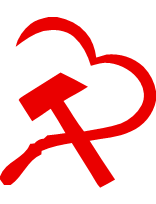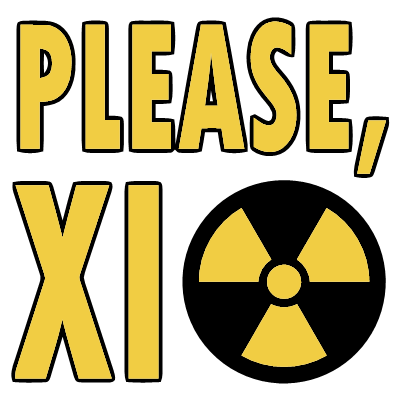I believe the last time this was brought up, it was clarified to be more of a rejection of Mao Zedong Thought's theory of Class Struggle, and a return to more Marxian theory. I will search for where I found that and edit my comment if I find it, or delete it if someone else finds it first.
Edit: found it archived on Lemmygrad from r/GenZhou here pasted in full below (the entire thread is great and offers far more insight into Historical Materialism as is relevant to China's course of development):
He is correct. Mao’s focus on “unrelenting class struggle” was incorrect and destructive.
After a communist party takes power, if all they focus on is class struggle, they will completely destroy all elements of the bourgeoisie in a short period of time, and fully abolish private property.
This idea sounds great emotionally. The idea of quickly achieving a fully public economy, the complete and unrelenting destruction of the bourgeoisie, both big and petty, for national and foreign, etc. This all sounds good emotionally. But in practice, it makes no sense.
If you simply kill enough people to reach socialism, you are pretty much rejecting Marx’s entire concept of historical materialism and viewing economic systems as something that can simply be implemented by government fiat, and rejecting the idea that one economic system develops out of the other. You can’t just implement socialism by fiat or by killing enough people. You have to develop towards it.
Trying to construct a fully planned economy through government fiat is a rejection of Marxian theory of social development and would inevitably lead you to implement an economic system that would be fundamentally impossible from Marx’s own analysis, you would be implementing full planning simply by fiat without ever developing the material basis for it. This would be an inevitable outcome of focusing purely on unrelenting class struggle.
The relentless destruction of all non-proletarian classes would inevitably lead you to construct an economy that is economically impossible and would be filled with internal contradictions and bound to collapse in the long-term. A communist party can only transform society gradually alongside rapid economic development.
“Will it be possible for private property to be abolished at one stroke? No, no more than existing forces of production can at one stroke be multiplied to the extent necessary for the creation of a communal society. In all probability, the proletarian revolution will transform existing society gradually and will be able to abolish private property only when the means of production are available in sufficient quantity.”
-– Friedrich Engels, “The Principles of Communism”
If it can only transform society gradually, this implies that private property must also continue to exist for some time. This makes sense from a classical understanding of Marxism because you cannot abolish it by fiat, the conditions for the abolition of private property are not implemented by government fiat but are formed by the development of markets themselves as markets have a tendency to socialize/centralize as they develop.
Hence, the communist party can’t simply go out and abolish all private property. It has to primarily focus on developing the country as rapidly as possible, and can only abolish private property “by degree” alongside this rapid development.
“The proletariat will use its political supremacy to wrest, by degree, all capital from the bourgeoisie, to centralise all instruments of production in the hands of the State, i.e., of the proletariat organised as the ruling class; and to increase the total productive forces as rapidly as possible.”
-– Marx & Engels, “Manifesto of the Communist Party”
While the idea of completely destroying the bourgeoisie in unrelenting class struggle sounds good emotionally, in practice it is nonsense. You have to develop the economy, and private property remains a part of the economy for a long time. Simply destroying even the national petty bourgeoisie just because of “muh class struggle” does not help you develop your economy. It is in fact destructive to your own economy.
The harsh pill which many Marxists refuse to swallow because of their “unrelenting class struggle” dogma is that the communist party will be forced to work with some elements of the bourgeoisie in order to develop its economy. Not all elements of course, but at least some, because private property inherently cannot be abolished in one stroke but requires material development.
“Due to the hasty and early entry into socialism, we didn’t accumulate enough experience to enable us to have a very clear understanding on the issues of social development. Throughout the ‘Great Leap Forward’ and the People’s Commune Movement in 1958, there had occurred a blind optimism of targeting ‘the realization of communism in our country, which is no longer a distant future’, and thus made a serious and erroneous estimation on the development stages of socialism….As Deng Xiaoping pointed out: As early as the second half of 1957 we began to make ‘Left’ mistakes. To put it briefly, we pursued a closed-door policy in foreign affairs and took class struggle as the central task at home no attempt was made to expand the productive forces, and the policies we formulated were too ambitious for the primary stage of socialism. After the 3rd Plenary Session of the Party, after the comparison of our both positive and negative experiences, the Chinese Communist Party has gradually made a scientific conclusion that China is in and will be in the Primary stage of socialism.”
— Xu Hongzhi & Qin Xuan, Basics of the Theoretical System of Socialism with Chinese Characteristics
While class struggle is still important to communist parties, it is only of primary importance before they take power. After they take power, it cannot be their primary focus. Their primary focus has to be to achieve communism. The communist party is already in power, they can already expropriate private property at will, and we saw this for example during COVID when they expropriated the PPE manufacturers. So the primary thing preventing China from becoming a fully planned economy is not the bourgeoisie. It is underdevelopment.

